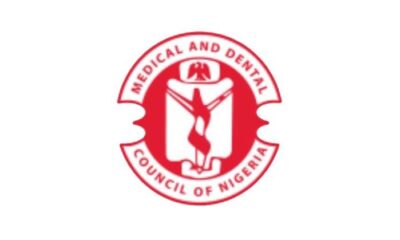Oil & Energy
Community Tasks FG On Illegal Refineries
The people of Bille Kingdom in Degema Local Government Area of Rivers State have called on security operatives and the Federal Government to assume full responsibilities over the destructions of illegal bunkering sites in the area.
Some leaders of Bille Kingdom made the call while protesting against attacks on members of the community by the displaced pipeline vandals.
Speaking to newsmen at the weekend, a prominent leader in Bille Kingdom, Ibitamuno Minapakama,said Bille community has no hand in the destruction of the illegal bunkering sites, pointing out that the operation was carried out by security operatives.
He regretted the incessant attacks and brutalization of members of the community by unidentified gunmen, suspected to be vandals whose illegal oil refining activities have been disrupted.
“It is regrettable that our people have come under attacks on the assumption that we are involved in the destruction of illegal bunkering sites last Tuesday, two indigenes of Bille were attacked and hospitalised, we have become endangered, species, I want to use this opportunity to call of the security operatives and Federal Government to own up their actions and save our people from incessant harassment.
In his view, the paramount ruler of Ubunabeke community in Bille Kingdom, Chief Benneth Okpokiri also urged security operatives to be civil in the discharge of their duties, by ensuring that innocent citizens are saved from unwarranted attacks.
He said the community leaders have written several letters to relevant authorities to wade into the matter to protect the people, but nothing has been done. “I want to state categorically, that the people of Bille have no hand in the destruction of the bunkering sites. It is the responsibility of security operatives who are out to clampdown on the vandals. I want to appeal to the government to give protection to the innocent citizens of Bille Kingdom who have become the objects of reprisal attacks, our people can no longer move freely in their communities for fear of being attacked.
Another indigene of Bille community who pleaded anonymity also raised alarm over attacks on the people. He called on government to wade into the matter before it degenerates into anarchy.
Taneh Beemene
Oil & Energy
FG Explains Sulphur Content Review In Diesel Production
The Federal Government has offered explanation with regard to recent changes to fuel sulphur content standards for diesel.
The Government said the change was part of a regional harmonisation effort, not a relaxation of regulations for local refineries.
The Chief Executive, Nigerian Midstream and Downstream Petroleum Regulatory Authority (NMDPRA), Farouk Ahmed, told newsmen that the move was only adhering to a 2020 decision by the Economic Community of West African States (ECOWAS) which mandated a gradual shift to cleaner fuels across the region.
Ahmed said the new limits comply with the decision by ECOWAS that mandated stricter fuel specifications, with enforcement starting in January 2021 for non-ECOWAS imports and January 2025 for ECOWAS refineries.
“We are merely implementing the ECOWAS decision adopted in 2020. So, a local refinery with a 650 ppm sulphur in its product is permissible and safe under the ECOWAS rule until January next year where a uniform standard would apply to both the locally refined and imported products outside West Africa”, Ahmed said.
He said importers were notified of the progressive reduction in allowable sulphur content, reaching 200 ppm this month from 300 ppm in February, well before the giant Dangote refinery began supplying diesel.
Recall that an S&P Global report, last week, noted a significant shift in the West African fuel market after Nigeria altered its maximum diesel sulphur content from 200 parts per million (ppm) to around 650 ppm, sparking concerns it might be lowering its standards to accommodate domestically produced diesel which exceeds the 200 ppm cap.
High sulphur content in fuels can damage engines and contribute to air pollution. Nevertheless, the ECOWAS rule currently allows locally produced fuel to have a higher sulphur content until January 2025.
At that point, a uniform standard of below 5 ppm will apply to both domestic refining and imports from outside West Africa.
Importers were previously permitted to bring in diesel with a sulphur content between 1,500 ppm and 3,000 ppm.
It would be noted that the shift to cleaner fuels aligns with global environmental efforts and ensures a level playing field for regional refiners.
Oil & Energy
PHED Implements April 2024 Supplementary Order To MYTO
The Port Harcourt Electricity Distribution (PHED) plc says it has commenced implementation of the April 2024 Supplementary Order to the MYTO in its franchise area while assuring customers of improved service delivery.
The Supplementary order, which took effect on April 3, 2024, emphasizes provisions of the MYTO applicable to customers on the Band A segment taking into consideration other favorable obligations by the service provider to Band A customers.
The Head, Corporate Communications of the company, Olubukola Ilvebare, revealed that under the new tariff regime, customers on Band A Feeders who typically receive a minimum supply of power for 20hours per day, would now be obliged to pay N225/kwh.
“According to the Order, this new tariff is modeled to cushion the effects of recent shifts in key economic indices such as inflation rates, foreign exchange rates, gas prices, as well as enable improved delivery of other responsibilities across the value chain which impact operational efficiencies and ability to reliably supply power to esteemed customers.
“PHED assures Band A customers of full compliance with the objectives of the new tariff order”, he stated.
Ilvebare also said the management team was committed to delivering of optimal and quality services in this cost reflective dispensation.
The PHED further informed its esteemed customers on the other service Bands of B, C D & E, that their tariff remains unchanged, adding that the recently implemented supplementary order was only APPLICABLE to customers on Band A Feeders.
Oil & Energy
PH Refinery: NNPCL Signs Agreement For 100,000bpd-Capacity Facility Construction

The Nigerian National Petroleum Company Ltd (NNPCL) has announced the signing of an agreement with African Refinery for a share subscription agreement with Port-Harcourt Refinery.
The agreement would see the co-location of a 100,000bpd refinery within the Port-Harcourt Refinery complex.
This was disclosed in a press statement on the company’s official X handle detailing the nitty-gritty of the deal.
According to the NNPCL, the new refinery, when operational, would produce PMS, AGO, ATK, LPG for both the local and international markets.
It stated, “NNPC Limited’s moves to boost local refining capacity witnessed a boost today with the signing of share subscription agreement between NNPC Limited and African Refinery Port Harcourt Limited for the co-location of a 100,000bpd capacity refinery within the PHRC complex.
“The signing of the agreement is a significant step towards setting in motion the process of building a new refinery which, when fully operational, will supply PMS, AGO, ATK, LPG, and other petroleum products to the local and international markets and provide employment opportunities for Nigerians.
By: Lady Godknows Ogbulu
-

 Rivers4 days ago
Rivers4 days agoCustomary Jurisprudence: CCA President Harps On Fair Hearing Importance
-

 Oil & Energy4 days ago
Oil & Energy4 days agoMinister Seeks IOCs, Stakeholders’ Unity On N’Delta Dev
-

 News4 days ago
News4 days agoFubara Expresses Satisfaction With National Council On Niger Delta
-

 Environment4 days ago
Environment4 days agoSouth East Businessmen Charge Governors On Rail, Security, Others
-

 Nation4 days ago
Nation4 days agoYahaya Bello: Senator Hails EFCC’s Probe Of N80.2bn Fraud
-

 Niger Delta4 days ago
Niger Delta4 days agoMDCN Clears Asaba Specialist Hospital As Novena University Teaching Hospital
-

 Politics4 days ago
Politics4 days agoFubara Tasks Rivers Stakeholders On Political, Economic Emancipation …Commissions NAVAL Training Command Headquarters At Ebubu
-

 Foreign4 days ago
Foreign4 days agoMunitions Explosion At Cambodian Army Base Kills 20 soldiers

